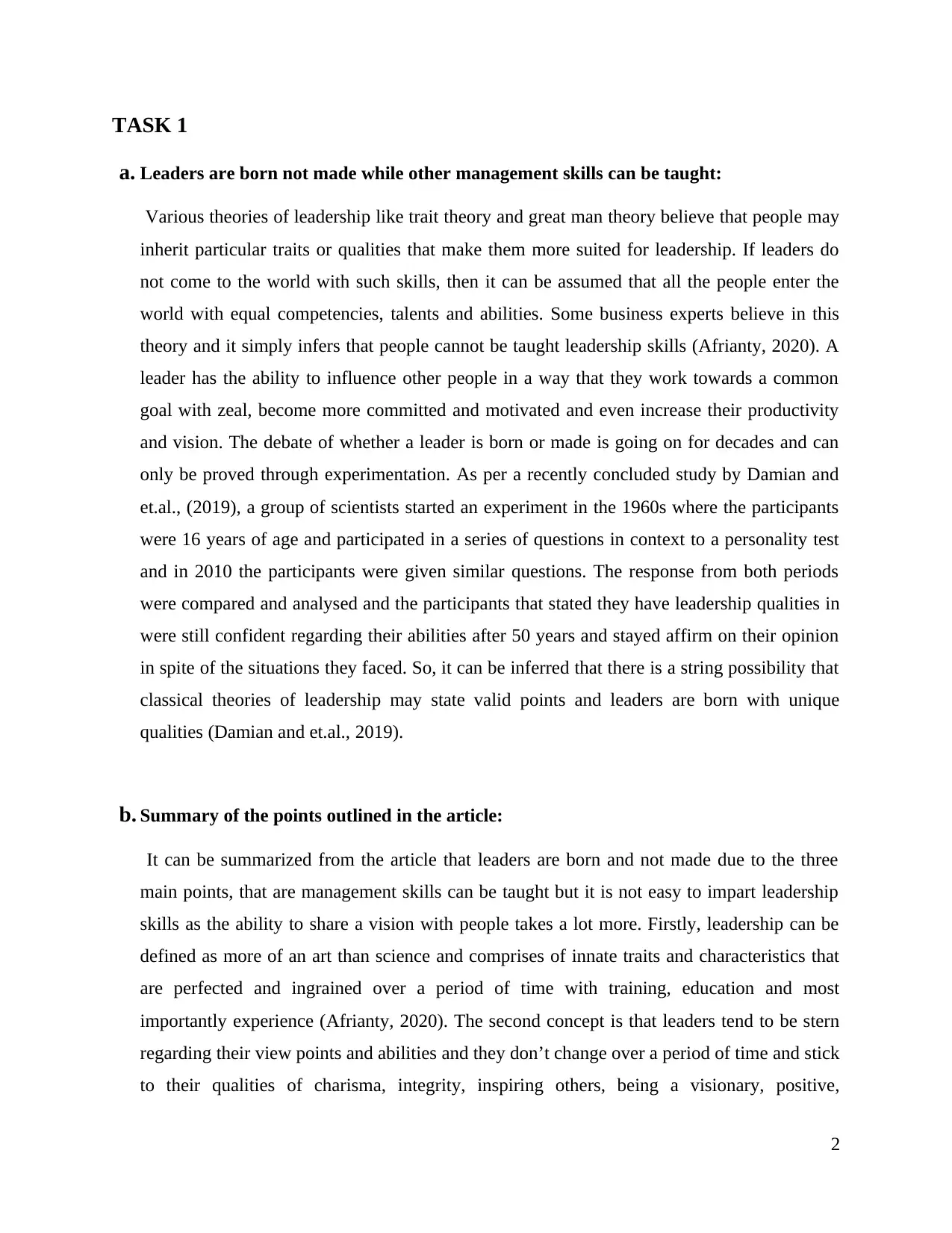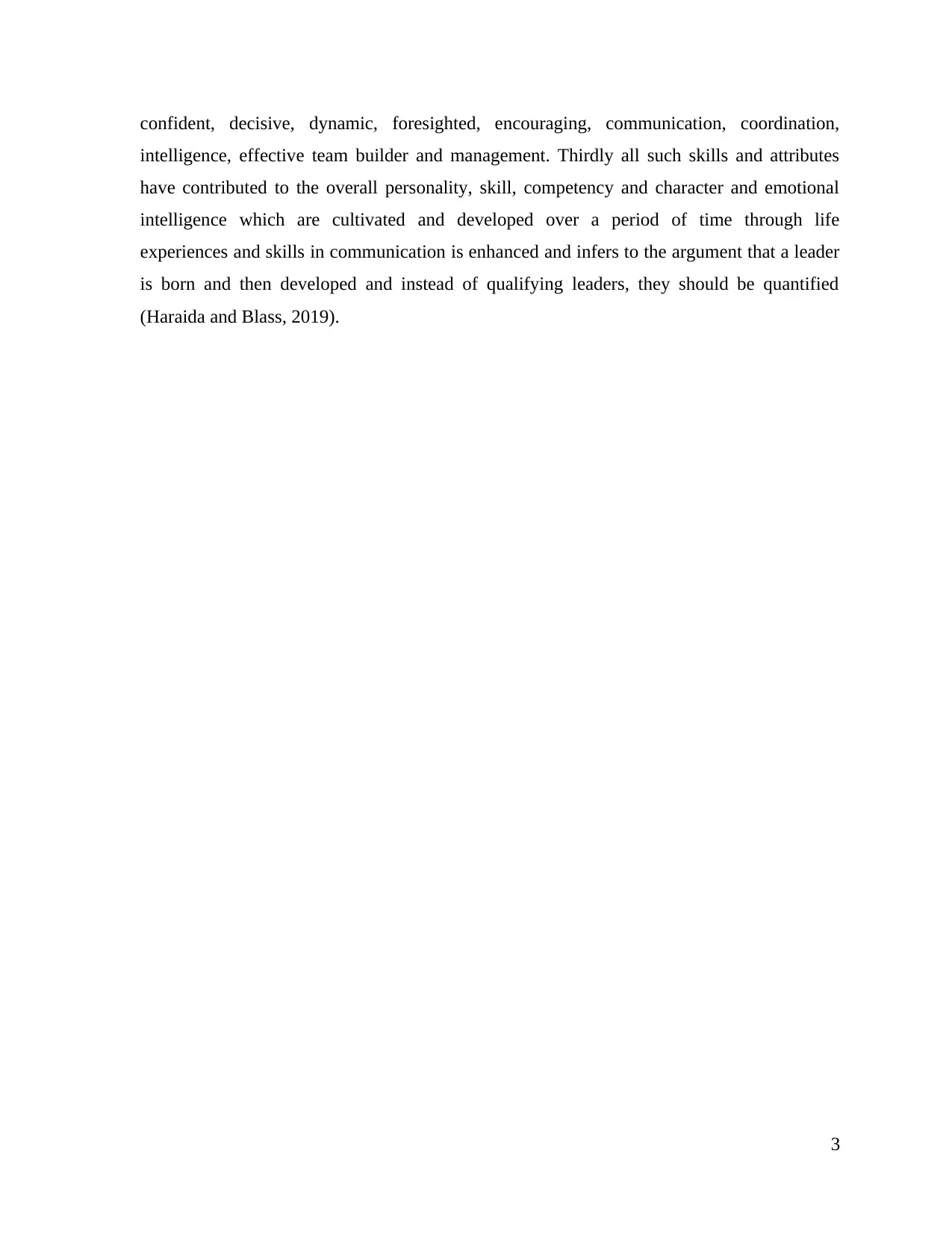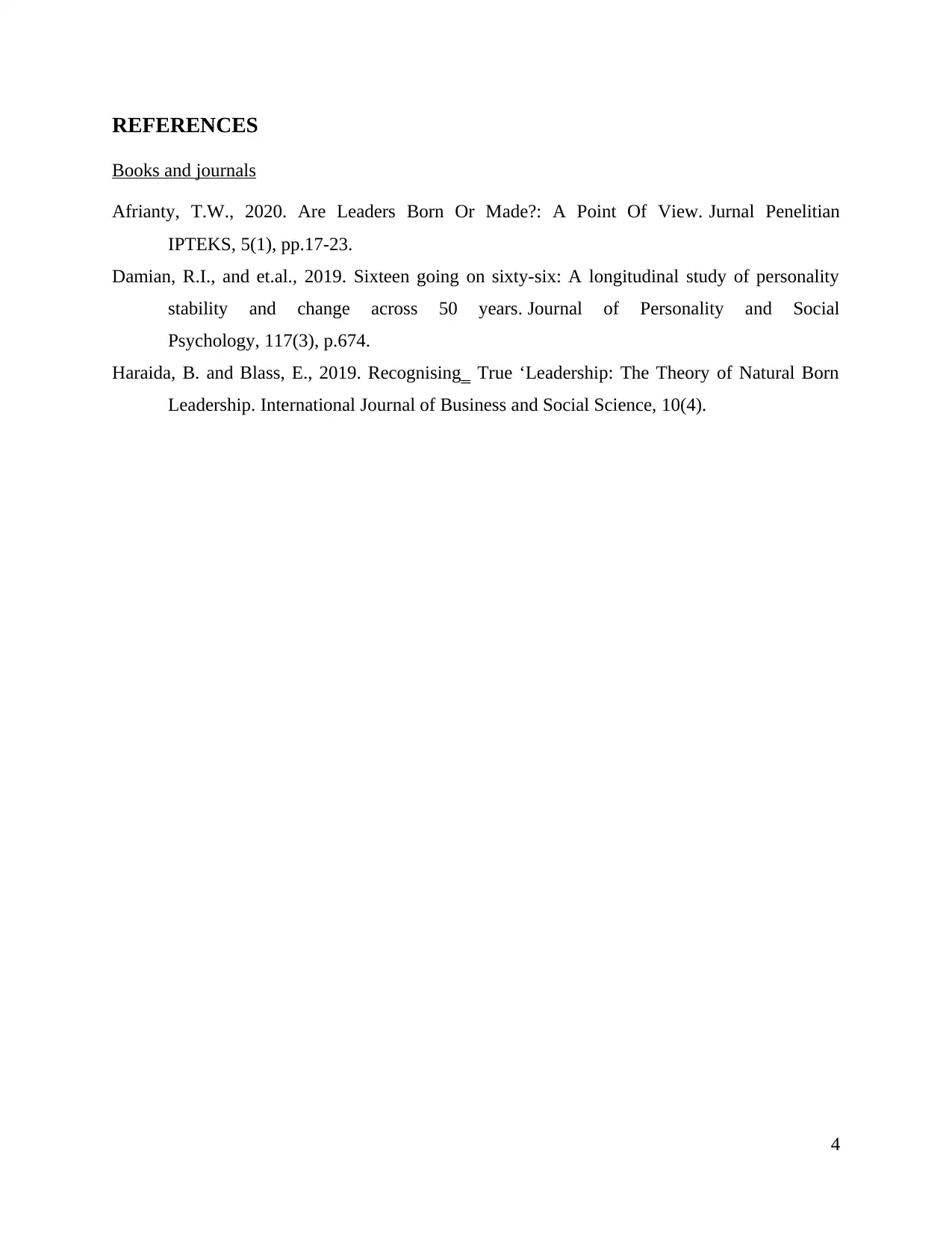Leadership: Born or Made? A Comprehensive Report on Theories
VerifiedAdded on 2023/01/03
|4
|652
|70
Report
AI Summary
This report delves into the age-old debate of whether leaders are born with innate qualities or are developed through experience and training. The report analyzes the 'born vs. made' leadership discussion and presents key arguments supporting both perspectives. It discusses leadership theories, including trait theory and the great man theory, highlighting the importance of inherent traits and learned skills. The report summarizes the main points, emphasizing that leadership is more than just management skills and requires the ability to share a vision. It further explores the evolution of leadership qualities over time, the role of charisma, integrity, and communication. The report refers to research by Afrianty (2020) and Damian et.al., (2019) to support the arguments. It concludes that leadership is a blend of innate characteristics and developed skills and suggests quantifying leaders, rather than qualifying them. The report emphasizes that leadership is an art, not a science and its development is a continuous process.
1 out of 4











![[object Object]](/_next/static/media/star-bottom.7253800d.svg)